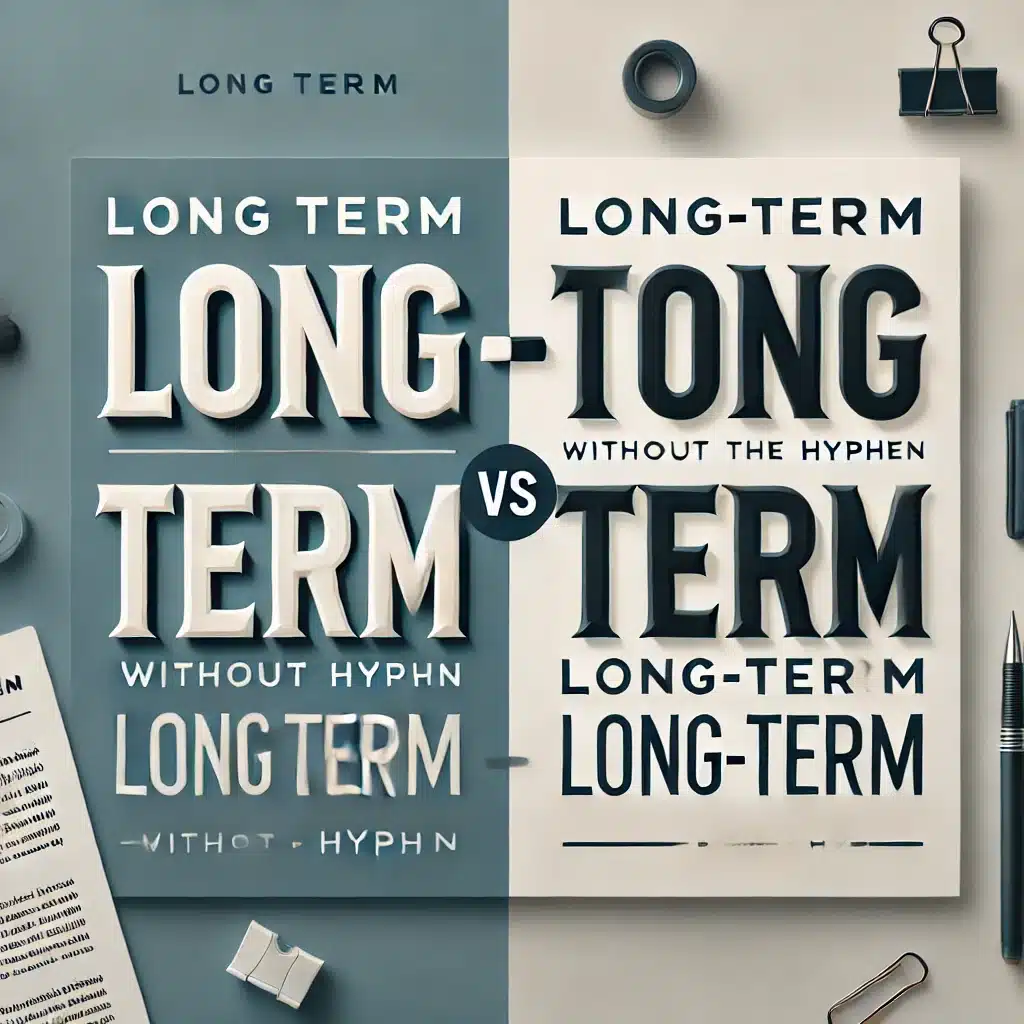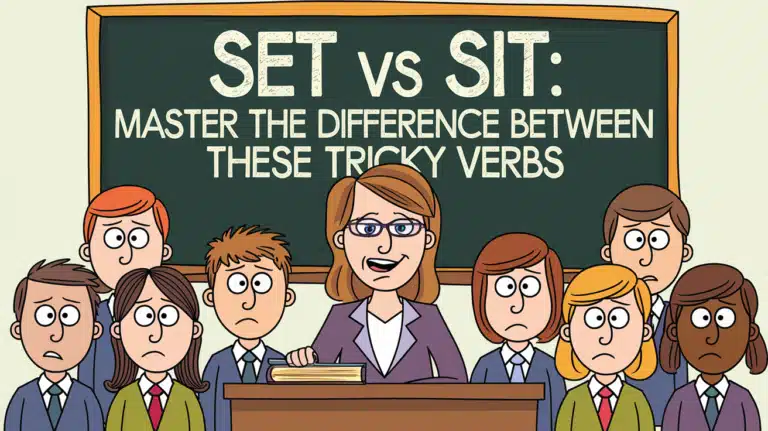Long Term or Long-Term: How to Use the Hyphen Correctly in Writing
In the world of writing, small details can make a big difference. One such detail that often trips up even seasoned writers is the use of long term vs long-term. This seemingly minor distinction can significantly impact the clarity and professionalism of your writing. Let’s dive into the nitty-gritty of this grammatical conundrum and equip you with the knowledge to make the right choice every time.
The Root of the Confusion
Why do so many writers struggle with this particular issue? The confusion stems from several factors:
- Evolving language rules: English is a living language, and its rules change over time.
- Inconsistent style guides: Different authorities sometimes offer conflicting advice.
- Context-dependent usage: The correct form can depend on how it’s used in a sentence.
Understanding these factors is crucial for mastering the correct usage of long term and long-term.
Read About : “Mastering the Past Tense of ‘Swing’
Defining Our Terms
Before we delve deeper, let’s clarify what we’re talking about Long Term vs Long-Term:
- Long term (without hyphen): Typically used as a noun phrase meaning “an extended period”.
- Long-term (with hyphen): Usually functions as an adjective describing something that lasts for an extended time.
These definitions might seem straightforward, but their application can be tricky.
Grammar Deep Dive: When to Use Each Form
“Long term” as a Noun Phrase
When “long term” acts as a noun phrase, it refers to an extended period without modifying another noun. For example:
- “We’re planning for the long term.”
- “In the long term, these investments will pay off.”
“Long-term” as an Adjective
When “long-term” modifies a noun, it’s hyphenated. This usage is common when discussing long-term goals or strategies:
- “We need a long-term solution to this problem.”
- “Her long-term career aspirations include becoming CEO.”
“The difference between a successful person and others is not lack of strength, not a lack of knowledge, but rather a lack of will.” – Vince Lombardi
This quote reminds us that success often requires long-term planning and perseverance.
The Hyphen’s Role in Compound Modifiers
Understanding compound modifiers is key to mastering proper hyphen usage. A compound modifier is two or more words that act together to modify a noun. When these words come before the noun, they’re usually hyphenated:
- Long-term effects
- Short-term memory
- Mid-term exam
However, when they come after the noun, no hyphen is needed:
- The effects were long term.
- Her memory was short term.
This rule applies to many similar phrases, making it a valuable tool in your writing tips arsenal.
Style Guide Showdown
Different style guides have slightly different takes on this issue:
| Style Guide | Recommendation |
|---|---|
| AP Style | Hyphenate before nouns, no hyphen after |
| Chicago Manual | Generally agrees with AP, but allows more flexibility |
| MLA/APA | Consistent with AP for most cases |
While these guides generally agree, it’s always best to check your specific guide or your organization’s preferred style.
Beyond Grammar: The Impact on Clarity and Meaning
Proper use of hyphens isn’t just about following rules; it’s about clear communication. Consider these sentences:
- “We need small business owners.”
- “We need small-business owners.”
The first could mean we need business owners who are physically small. The second clearly refers to owners of small businesses. This example shows how hyphenation can dramatically affect meaning.
Digital Age Considerations
In our digital world, how we write affects more than just human readers:
- SEO implications: Search engines might treat “long term” and “long-term” differently.
- URLs and hashtags: Hyphens are often replaced with underscores or removed entirely.
- Auto-correct quirks: Some software might “correct” your usage, not always accurately.
Being aware of these factors can help you make informed decisions, especially when writing for digital platforms.
Synonyms and Related Phrases
Sometimes, you might want to avoid the long term vs long-term dilemma altogether. Here are some alternatives:
For long term (noun phrase):
- Extended duration
- Prolonged period
- Sustained timeframe
For long-term (adjective):
- Enduring
- Lasting
- Sustained
Each alternative carries slightly different connotations, so choose wisely based on your context.
Etymology and Evolution
The phrase “long term” has been in use since the early 19th century, originally in financial contexts. The hyphenated form gained popularity in the 20th century as compound adjectives became more common.
Interestingly, Google Ngram Viewer shows that the use of “long-term” has been steadily increasing since the 1940s, while “long term” usage has remained relatively stable.
Common Mistakes and How to Avoid Them
Here are some pitfalls to watch out for:
- Inconsistent usage: Mixing “long term” and “long-term” in the same document.
- Overuse of hyphens: Remember, not every two-word phrase needs a hyphen.
- Ignoring context: Failing to consider whether you’re using it as a noun phrase or an adjective.
To avoid these common writing mistakes, always proofread your work and consider the function of the phrase in your sentence.
Real-World Examples
Let’s look at how these phrases are used in various contexts:
- News headline: “Long-Term Effects of Climate Change Becoming More Evident”
- Academic paper: “The study examines the long-term implications of early childhood education.”
- Business report: “Our long-term strategy focuses on sustainable growth.”
These examples demonstrate how long-term is commonly used as an adjective in professional writing.
The Writer’s Toolbox: Making the Right Choice
When deciding between “long term” and “long-term”, consider:
- Function in the sentence: Is it modifying a noun or standing alone?
- Audience expectations: What’s the norm in your field or for your readers?
- Consistency: Once you choose a style, stick with it throughout your document.
Remember, good writing is about clear communication, not just following rules rigidly.
Conclusion: Mastering the Long-Term Perspective in Writing
Understanding the difference between “long term” and “long-term” is more than just a grammatical nicety—it’s about precision in communication. By mastering this distinction, you’re adding a powerful tool to your writing arsenal.
Whether you’re crafting long-term goals, analyzing long-term effects, or discussing plans for the long term, you now have the knowledge to do so with confidence and clarity.
Remember, language evolves, and what’s considered correct today might change in the future. Stay curious, keep learning, and always prioritize clear communication in your writing.







